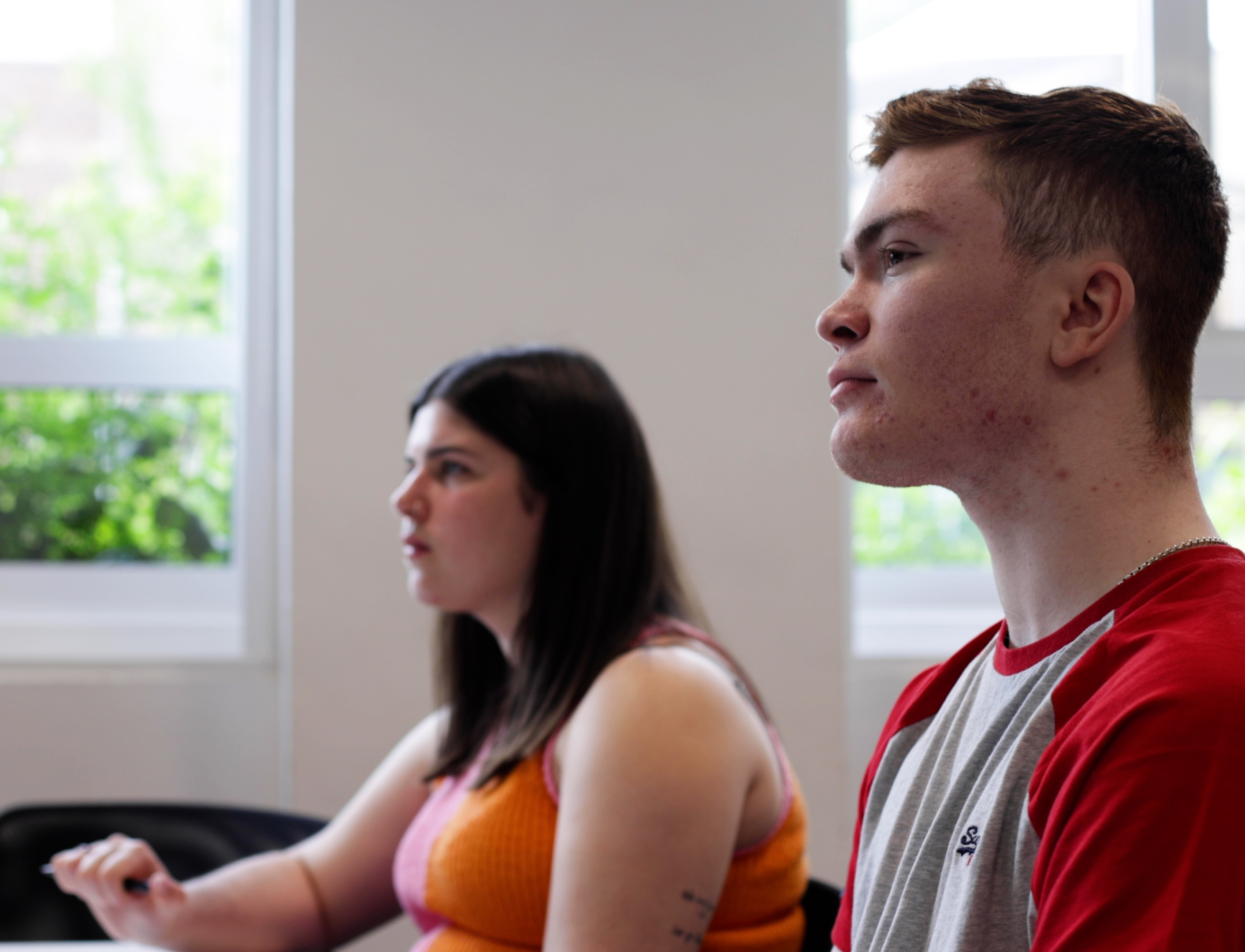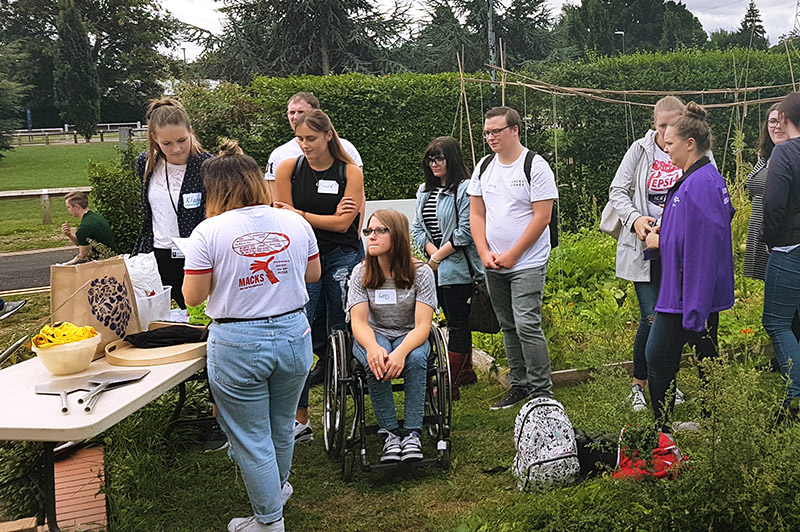On this course, you’ll consider the psychological impact of crime upon victims, offenders and wider society, and examine how crime can be prevented and re-offending can be reduced.
for student satisfaction in our sociology courses, which include criminology
of students in work and/or further study fifteen months after graduation
University of the Year finalist
Recognised for our graduate success, we’re shortlisted for University of the Year in the Times Higher Education Awards 2025.
Overview
This course is designed for those who want to gain an understanding of the psychology behind criminal behaviour.
You’ll be taught by expert staff that specialise in current criminological and psychological issues, including offender rehabilitation, cybercrime, criminal profiling, social justice, and the influence of media on crime.
At Worcester, you’ll gain real-world experience alongside your academic studies, preparing you for your future. You not only get to explore a range of career options – including the police, prison, and probation services – you also get to meet people working in these areas. You’ll graduate with the practical experience and professional links needed to begin a rewarding career in the criminal justice sector.
There are no exams on this course. Instead, you’ll be assessed through a range of applied methods - such as case reports, presentations, and offender profiles - designed to prepare you for the work you may be doing after you graduate.
Course content
Each year you will study a mix of mandatory and optional modules. This flexible course lets you explore different subjects and career paths in both criminology and forensic psychology before choosing to specialise in your final year.
We regularly review our courses to reflect the latest research and developments in the subject area, as well as feedback from students, employers and the wider sector. As a result, modules may change to ensure the course remains current and relevant.
Optional modules will run if enough students choose to study them. It is not guaranteed that all modules will be offered every year.
Optional modules
Careers
Our career development programme will prepare you to enter the world of work and encourage you to consider your future career options.
Our course team have a strong relationship with many local employers, and industry professionals from the police, prison and probation services join us for our annual careers fair. We also organise a range of talks and workshops from guest speakers and academic staff on topics such as interview skills and applying to work in policing.
This degree could be the first step toward your career as a:
- Prison caseworker
- Victim liaison officer
- Rehabilitation worker
- Police detective
- Crime analyst
- Crime scene investigator
- Probation officer
- Prison offender manager
- Youth justice worker
Further Study
You may wish to take your learning further and progress onto postgraduate study. Our MA Applied Criminology programme will provide you with opportunities to develop your specialist interests through a 1-year internship and extended research project.
Alternatively, if you’re hoping to become a forensic psychologist in the future, you can choose to complete our BPS-accredited MSc Psychology conversion course after graduating.
Course highlights
Teaching and assessment
Through a mix of taught classes, work-based learning and assessments, this course is designed to provide you with a platform for achieving Graduate Basis for Chartered Membership within psychology, and have the skills and experience needed to move into a wide-range of jobs.
Teaching and assessment contents
You'll learn through a mix of teaching styles, such as lectures, seminars, computer lab work and practical sessions so you can understand the theory by applying it in practice. Lectures are used to introduce you to core ideas, drawing from both classic theories and modern-day examples. You'll also have the chance to discuss theories and practices with your peers in seminars, and practical classes will provide you with key practitioner-based skills.
Meet the Team
A small selection of the Health and Wellbeing lecturers who teach on this course.
Entry requirements
UCAS tariff points required: 112
| Qualification | Grade |
|---|---|
| A-level | BBC |
| BTEC National Extended Diploma | DMM |
| T-level | Merit |
We do accept Access to HE Diplomas and other qualifications which may not exactly match the combinations above. Work out your estimated points with the UCAS tariff calculator.
Any questions?
If you have any questions about entry requirements, please call our Admissions Office on 01905 855111 or email admissions@worc.ac.uk.
Fees
Fees contents
UK and EU students
In 2026/27 the standard fee for full-time home and EU undergraduate students on BA/BSc/LLB degrees and FdA/FdSc degrees is £9,790 per year.
Tuition fees are reviewed annually and may increase each year for both new and continuing students.
For more details on course fees, please visit our course fees page.
International students
In 2026/27 the standard tuition fee for full-time international students enrolling on BA/BSc/LLB degrees and FdA/FdSc degrees is £17,200 per year.
Tuition fees are reviewed annually and may increase each year for both new and continuing students.
For more details on course fees, please visit our course fees page.
Student case studies
How to apply
How to apply contents
Applying through UCAS
UCAS is the central organisation through which applications are processed for full-time undergraduate courses in the UK.
Read our how to apply pages for more information on the application process, or if you’d like to apply for part-time study.
- Psychology with Criminal and Forensic Contexts BSC (Hons) - CL83
- Psychology with Mental Health Practice BSC (Hons) - C848
- Psychology with Sport and Exercise Studies BSc (Hons) - C813
- Psychology BSc (Hons) - C800
Contact
If you have any questions, please get in touch. We're here to help you every step of the way.

Amy Johnson
Senior Lecturer in Psychology and Criminology and Programme Leader for Criminology Related Courses
a.johnson@worc.ac.uk
Admissions Office
admissions@worc.ac.uk01905 855111More to explore
Open Days
Visiting us is the best way to get a feel for student life at the University of Worcester.

The City of Worcester
Worcester is a welcoming university city with great transport links and plenty of student parking.

Accommodation
Benefit from our accommodation guarantee. We have rooms on campus to suit every budget including en-suite options.











